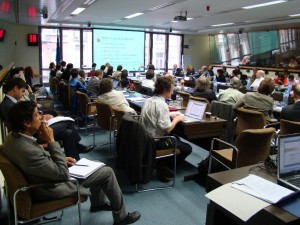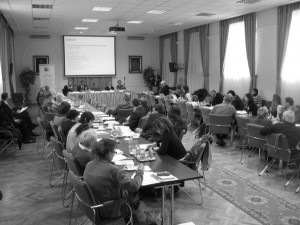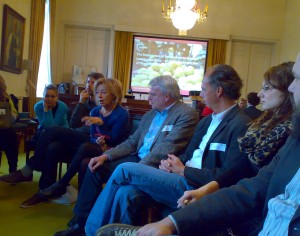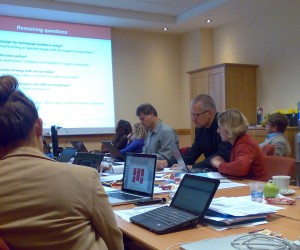Social (research) Platforms are a new way of funding research by the European Union. The platforms bring together academics, policy makers and civil society (companies, NGOs, advocacy groups). They tackle new and urgent social/economic/ environmental issues in many ways: they do research, give policy advice and identify existing gaps in research. Four platforms have been funded in the framework of the SSH research programme, the Socio-economic Sciences and Humanities programme of the EU.
Helena Imminga- Berends of Regenboog Advies was asked to review/ assess/ evaluate these platforms. You can download and read the report which was put online by the European Commission. Below a short description of the platforms.
1. Social cohesion in cities. This Platform (called ‘Socialpolis’) developed a methodology to produce socially relevant knowledge about how to get more cohesive cities. The project was an innovative research project because it crossed the boundaries of the academic world and took the knowledge and experience of practitioners seriously. See: http://www.socialpolis.eu –
2- Families and Family Policies. This Platform (called ‘Familyplatform’) gathered 12 organisations to work together for increasing the wellbeing of families across Europe. It encouraged dialogue between stakeholders about family life and suggested new research topics. The platform consisted of universities, research institutes, foundations, associations, etc. See: http://www.familyplatform.eu
3. Sustainable Lifestyles 2050. This Platform (called SPREAD) brought together very different societal stakeholders (from business, research, policy and civil society) and: 1. developped 4 visions for sustainable lifestyles in 2050, 2. produced a roadmap for strategic action for policy makers, 3. delivered innovative ideas for business, research and society on how to enable sustainable lifestyles in European society. See: http://www.sustainable-lifestyles.eu
4. Social Innovation– The INNOSERV Platform on innovative social services is the most recent one as it started in 21012. Its task was to detect, analyse and present innovative ways (accross Europe) regarding social services (i.e. health, education and welfare services such as care). It looked at access, costs (including wider social costs/benefits), quality of provision, individual / household risk, gender issues. The contribution of such services to wider societal objectives such as citizens’s rights, (in)equality and social cohesion was also taken into consideration, and their potential for providing good solutions. The platform gathered researchers and many stakeholders in the social services field, including end-users, citizens’s groups, employees and policy-makers. They made videos of good practices and gave advice for future/ new research topics. See: http://inno-serv.eu/
Helena Imminga Berends made the review of the 4 platforms using the appreciative inquiry method and a on line questionnaire. She is a researcher and a social entrepreneur with extensive experience in policymaking.
See other European Union financed publications dealing with ‘Social Sciences and Humanities’research: http://ec.europa.eu/research/social-sciences/index.cfm?pg=library&lib=policy_reviews:





